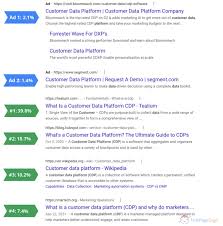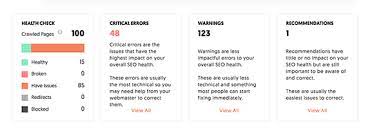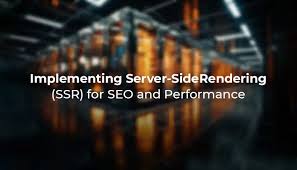Unlocking Success: Maximising Your Website’s Potential with a Keyword Search Engine Ranking Tool
The Importance of Using a Keyword Search Engine Ranking Tool
In the ever-evolving world of digital marketing, staying ahead of the competition requires a deep understanding of search engine optimisation (SEO). One crucial aspect of SEO is keyword research, which involves identifying the terms and phrases that potential customers use when searching for products or services online. However, simply identifying keywords is not enough; monitoring your website’s performance for these keywords is equally important. This is where a keyword search engine ranking tool comes into play.
What is a Keyword Search Engine Ranking Tool?
A keyword search engine ranking tool is a powerful software or online service that allows website owners and digital marketers to track the positions of their chosen keywords in search engine results pages (SERPs). By entering specific keywords into the tool, users can monitor how their website ranks for those keywords over time.
The Benefits of Using a Keyword Search Engine Ranking Tool
There are several compelling reasons why using a keyword search engine ranking tool is essential for any SEO strategy:
- Track Performance: By regularly monitoring your keyword rankings, you can assess the effectiveness of your SEO efforts and make informed decisions to improve your website’s visibility.
- Competitor Analysis: Compare your keyword rankings with those of your competitors to identify opportunities for improvement and stay ahead in the digital landscape.
- Identify Trends: Detect fluctuations in keyword rankings and adjust your strategy accordingly to capitalise on emerging trends or address potential issues.
- Measure Success: Use ranking data to measure the success of your SEO campaigns and demonstrate tangible results to stakeholders.
Choosing the Right Keyword Search Engine Ranking Tool
When selecting a keyword search engine ranking tool, consider factors such as accuracy, ease of use, reporting capabilities, and compatibility with other SEO tools. Look for features like historical data analysis, mobile rank tracking, and localised search results to ensure comprehensive monitoring of your keyword performance.
In Conclusion
A keyword search engine ranking tool is an indispensable asset for any business looking to improve its online visibility and drive organic traffic. By leveraging the insights provided by such tools, you can refine your SEO strategy, outperform competitors, and achieve sustainable growth in search engine rankings. Embrace the power of data-driven decision-making with a reliable keyword search engine ranking tool today!
Top 5 Tips for Enhancing Search Engine Rankings with Effective Keyword Strategies
- Choose relevant keywords that accurately describe your content.
- Use long-tail keywords to target specific audiences and improve ranking.
- Regularly monitor keyword performance and make adjustments as needed.
- Analyse competitor keywords to identify opportunities for improvement.
- Optimise website content with selected keywords for better search engine ranking.
Choose relevant keywords that accurately describe your content.
Selecting relevant keywords that precisely reflect the content of your website is paramount when utilising a keyword search engine ranking tool. By choosing keywords that align closely with the products, services, or information you offer, you increase the likelihood of attracting qualified traffic to your site. Ensuring that your selected keywords accurately describe your content not only enhances your search engine visibility but also improves user experience by delivering precisely what visitors are seeking. This strategic approach to keyword selection not only boosts your search engine rankings but also establishes credibility and trust with your target audience.
Use long-tail keywords to target specific audiences and improve ranking.
To enhance your website’s ranking and target specific audiences effectively, consider utilising long-tail keywords with a keyword search engine ranking tool. Long-tail keywords are more specific phrases that typically have lower search volume but higher conversion rates. By incorporating long-tail keywords into your content and monitoring their performance using a ranking tool, you can attract qualified leads and improve your website’s visibility in search engine results. This strategic approach not only boosts your SEO efforts but also helps you connect with users who are actively seeking the products or services you offer, ultimately leading to enhanced engagement and better conversion rates.
Regularly monitor keyword performance and make adjustments as needed.
Regularly monitoring keyword performance using a reliable search engine ranking tool is essential for maintaining a strong online presence. By tracking how your chosen keywords rank in search engine results pages (SERPs) over time, you can gain valuable insights into the effectiveness of your SEO strategy. If certain keywords are not performing as expected, adjustments can be made to improve their visibility and drive more organic traffic to your website. This proactive approach ensures that your online content remains relevant and competitive in an ever-changing digital landscape, ultimately helping you reach and engage with your target audience more effectively.
Analyse competitor keywords to identify opportunities for improvement.
Analysing competitor keywords using a keyword search engine ranking tool can offer valuable insights and opportunities for enhancing your SEO strategy. By comparing your keyword rankings with those of competitors, you can identify gaps, weaknesses, and untapped potential in your content and targeting. This competitive analysis enables you to discover high-performing keywords that you may have overlooked, as well as areas where you can outshine your rivals. Leveraging this information allows you to refine your keyword selection, optimise your content, and ultimately strengthen your position in search engine results pages (SERPs).
Optimise website content with selected keywords for better search engine ranking.
To enhance your search engine ranking, it is crucial to optimise your website content with carefully selected keywords. By strategically incorporating relevant keywords into your website’s content, you can signal to search engines the topic and relevance of your pages. This practice not only improves the visibility of your website in search results but also enhances user experience by providing valuable and targeted information. Effective keyword optimisation ensures that your content aligns with what users are searching for, ultimately driving organic traffic to your site and boosting its overall performance in search engine rankings.








